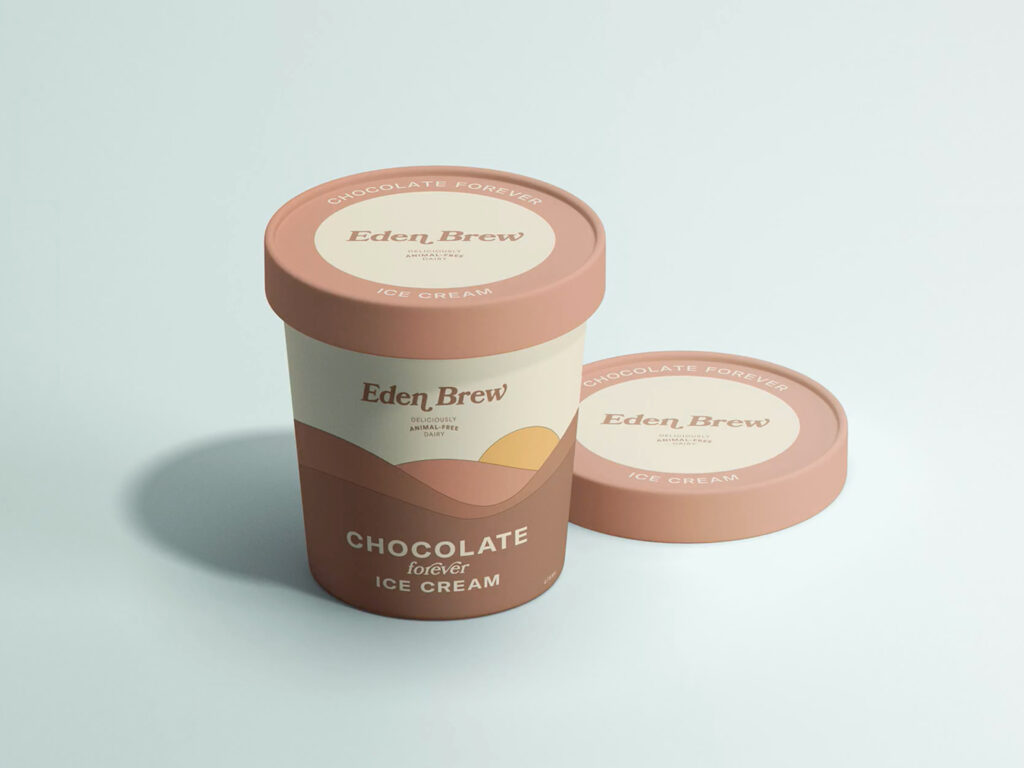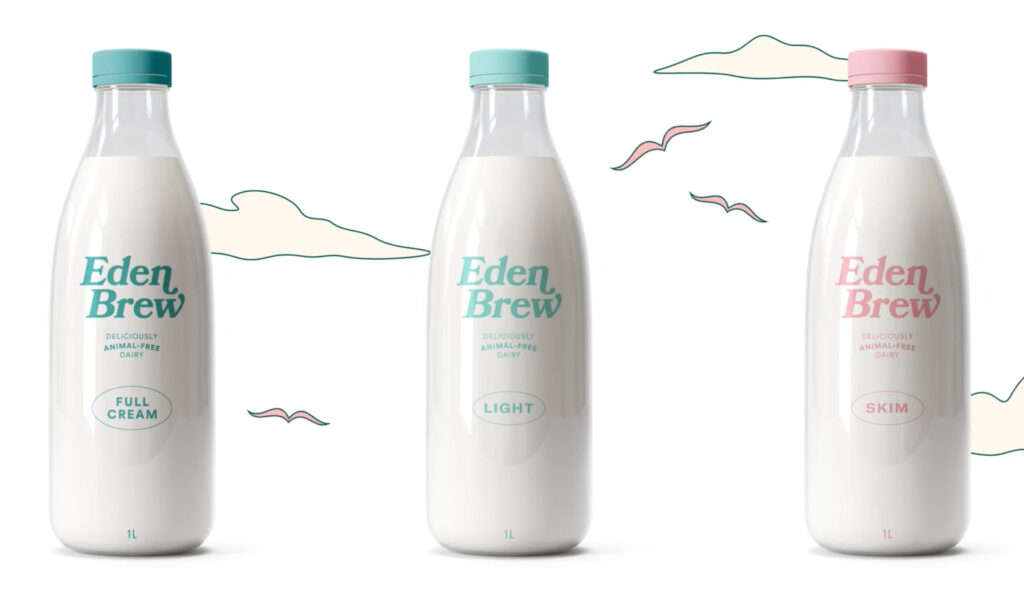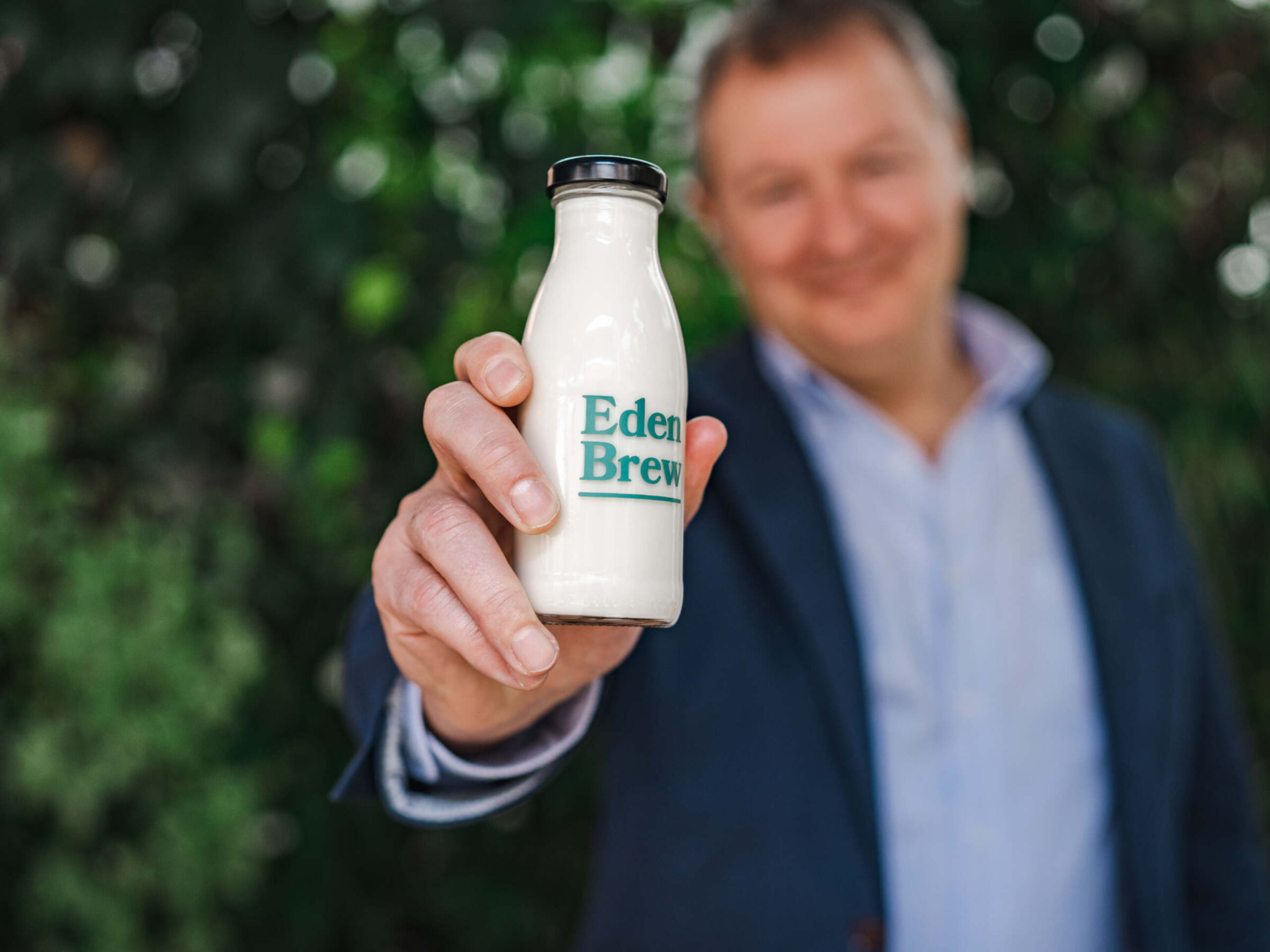Australia’s Eden Brew Raises $24.5M in Series A to Scale Up Animal-Free Casein Micelle & Dairy Protein Production
4 Mins Read
Australian precision fermentation startup Eden Brew – co-owned by the country’s largest dairy cooperative, Norco – has closed a $24.4M Series A funding round. The company has developed what it calls a “world-first” animal-free casein micelle, which helps it emulate the sensorial and nutritional properties of conventional dairy.
Launched in 2020, Eden Brew says the latest funding will help it scale up its brewing process of animal-free proteins to commercial production levels, enable the next stage of development and approvals, and speed up its path to launch its ice-cream product.
The investment round was led by existing investor Main Sequence Ventures, with other participants including the government-funded Breakthrough Victoria, Radar Ventures, Possible Ventures, Mars’ Digitalis Ventures, NGS Super, and Norwegian branded goods company Orkla. It also attracted financing from several Australian celebrities, like musicians Bernard Fanning, Angus Stone and Paul Piticco, and Paralympian Dylan Alcott.
The Series A round follows a $5M cash injection in June 2022, which included its co-founders Main Sequence and Norco, as well as Digitalis Ventures. Norco’s continued interest is an indicator of a potential opportunity to bring Eden Brew’s precision-fermented dairy products to the Nordics as well.
“Investing in Eden Brew goes beyond just business,” said Chris Hitchen, managing partner at Possible Ventures. “It represents our commitment to a sustainable solution addressing the protein needs of a future 10-billion-strong population. We’re proud to support this exceptional team, their visionary approach and cutting-edge science.”
The casein key to unlocking animal-free dairy

“We created Eden Brew with the aim of sustainably increasing the world’s milk supply, through Australian research ingenuity and the immense precision fermentation opportunity,” said Phil Morle, partner at Main Sequence and co-founder of Eden Brew. “As the global population grows, it poses a very real threat to our existing food supply and resources, and companies like Eden Brew augment this to ensure the availability of food in the future.”
The company has developed an animal-free casein micelle, which is responsible for 80% of the total protein content in dairy and is the key to recreating the sensory and nutritional characteristics of conventional dairy. Eden Brew has previously claimed that its milk is more sustainable than other counterparts, requiring less than 10 litres of water to make a litre of finished milk product – compared to 1,000 litres for cow’s milk and 6,000 litres for almond milk.
Its co-founder and CEO Jim Fader stressed that the funding will allow the company to bring to market its precision fermentation milk products. “We are focused on creating the ultimate animal-free casein micelle, which is critical to produce the properties of milk that we’re used to, and yet it’s cow-free,” he said.
“The micelle makes nutrition such as calcium bioavailable and its replication via precision fermentation means families have another source to meet their nutritional needs. This is something alternative plant-derived milks cannot replicate. It’s a huge deal, it’s never been done, and will change the landscape of alternative milks.”
Its route to scalability will be helped by the fact that it is co-owned by Norco, Australia’s oldest and largest dairy cooperative. Norco’s dairy production capabilities and experience, as well as established supply chains, will significantly advance Eden Brew’s scale-up efforts.
‘Major obstacles’ for precision fermentation

“We urgently require innovations and support to bring products like this to the market. These products aim to feed a growing population without placing increased pressure on our agricultural ecosystems,” said Dr Simon Eassom, executive director of Australian alt-protein think tank Food Frontier. “One of the barriers for the sector is the ability to produce the products at a commercial scale, something this support will help to overcome.”
Another major hurdle for the startup to overcome is regulatory approval. In Australia, cellular agriculture products are classed as novel foods, and require pre-market authorisation before being allowed to be sold. Currently, no company has applied for such clearance in the country.
Other recent developments in the precision fermentation sector down under include Cauldron’s $10.5M raise earlier this year to build the largest network of microbial fermentation facilities in Asia-Pacific, and Aussie-American startup Change Foods’ award of two government grants last year to develop manufacturing plants and scale up its animal-free dairy production.
Animal-free casein at scale remains the holy grail of alt cheese
Globally, companies who are working with animal-free casein proteins include Pureture, New Culture, Climax Foods (all US), Fermify (Austria), Zero Cow (India), Standing Ovation (France) and Fooditive (the Netherlands).
Convincing dairy cheese alternatives have remained elusive (plant-based varieties have not won over the mainstream) and while precision fermentation leaders like Perfect Day and Remilk have debuted whey-based cream cheeses that mimic the animal milk versions fairly successfully, melty cheeses and harder cheeses that require casein, a protein that gives dairy cheese many of its key characteristics, are not yet available at scale.
Pureture says it is vegan casein from yeast-based traditional fermentation and Climax Foods says its AI-powered plant-based casein “mimics the functionality, flavor, texture, melt, and stretch of dairy casein”, but New Culture is the only precision fermentation startup to claim it can scale casein and has held tastings of its animal-free mozzarella at chef Nancy Silverton’s Mozza pizza restaurants in Los Angeles, with a wider release expected next year.



